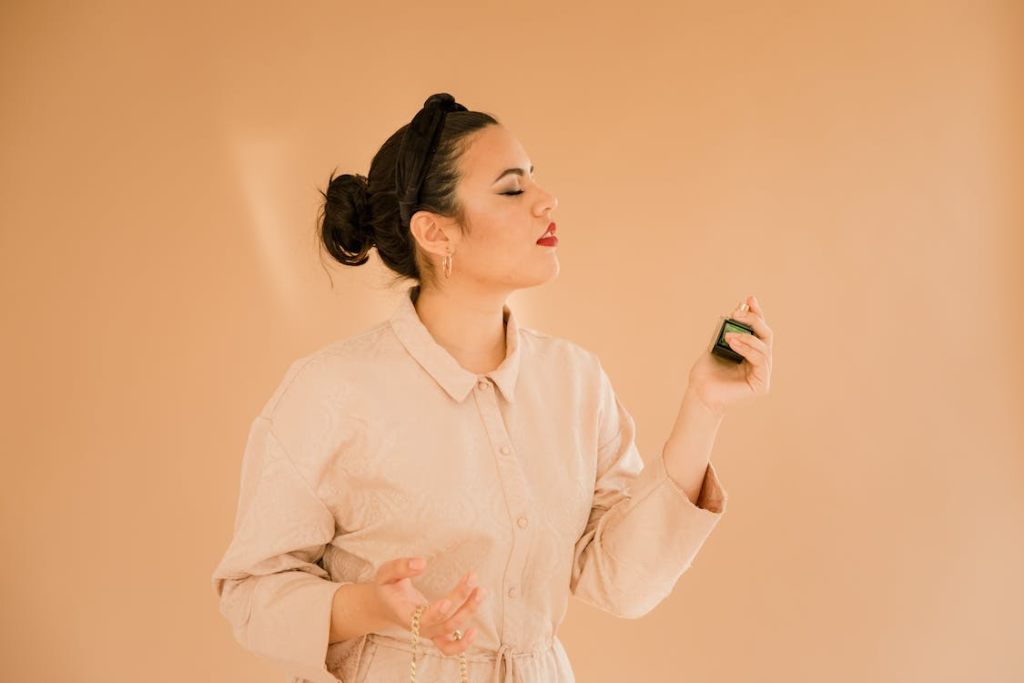
Have you ever wanted to learn how to make perfume oil? Creating your own perfume oil allows you to be creative and develop a scent that is truly, uniquely yours.
Perfume-making is both an art and a science, but it’s easier than you think to make essential oil perfume at home. Follow the steps below to start making your perfume oil.
Do Some Research On Your Ingredients
Before you start looking for materials for making perfume, it’s important to do some research on ingredients. Some perfume oil ingredients, especially essential oils, can be very potent and even irritating if used incorrectly.
It’s important to follow the standard ratio of no more than 20% concentration of essential oils and 80% concentration of carrier oil.
It’s also important to remember that oil based perfume ingredients sometimes cause photosensitivity. If you have an idea of what type of scent you want to create, make sure that you research those ingredients to see if there are any side effects that you should be aware of.
Discover The Components That Make Up a Scent
Do you ever wonder what makes the best oil perfume fragrance? Fragrances aren’t created by chance. There’s a formula that perfume makers follow to make their scents memorable, lasting, and delightful to the nose.
There are three main notes in perfumes:
- Top: These are the most dominant scents and last for about 15 minutes.
- Middle: These are what carry the perfume and become most dominant for about 15-45 minutes.
- Base: The longest-lasting notes, which can last for hours.
The notes you choose and the order in which you place them will have a direct effect on how you experience your perfume.
Pick Out Your Choices in Fragrance Oils
Now that you’ve done your research and understand the components of a scent, you can start choosing your oils.
You can blend your scents however you want, but here are some aromatic guidelines to consider:
- Citrus notes are often used as top notes because they are so potent and refreshing. Examples of citrus notes include bergamot, grapefruit, and lemon.
- Florals are popular middle notes because they are light and pleasant. Examples of floral notes are rose, geranium, jasmine, iris, peony, and lavender.
- Woodsy and musky notes are popular base notes because they’re grounding and warm. Examples of woodsy and musky notes are cedarwood, vetiver, sandalwood, ambrette, and pine.
If you’re not sure where to start with your perfume oil selection, try researching a fragrance you already know and love. What notes does the perfume have? You can typically find this information in the product description.
Gather the Necessary Components
Once you have an idea of what type of scent you want to create, it’s time to gather all of the materials you will need.
To make your own perfume oil, you will need:
- The essential oils for your top, middle and base notes;
- An unscented carrier oil, such as almond or jojoba oil;
- Rollerball bottles (0.2 oz. is ideal);
- 4 glass droppers or pipettes – one for the carrier oil and one for each of your essential oils. You may need more if you’re using more than one essential oil for each component of your fragrance.
The standard recipe for perfume oil is as follows:
- 20 drops of essential oil blend (10 of the base note, 5 of the middle note, and 5 of the top note);
- 80 drops of carrier oil;
- Alcohol (optional);
Alcohol helps diffuse the scent and merge the ingredients together.
Once you’ve added the ingredients to your rollerball bottle, seal and shake the bottle gently to blend everything together.
The Process of Applying

The way in which you apply your fragrance is also important. For example, if you’re using a rollerball bottle, then all you have to do is roll the scent on your pulse points.
The best points for application are:
- Behind the ears;
- On the collarbone;
- On the chest;
- On the tops of your arms;
Final Thoughts
Making your own perfume oil isn’t as complicated as it sounds and can be a fun project. It’s a great way to create a scent that is truly your own, and you can recreate it anytime you want right from home. Be sure to use quality essential oils for your perfume to ensure the best scent.



